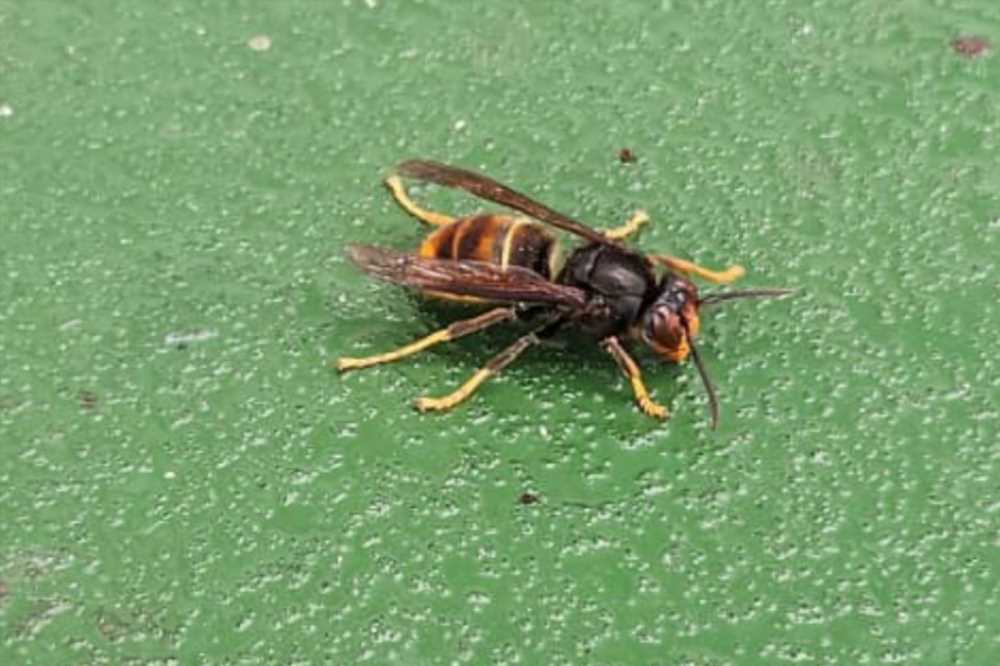KILLER Asian hornets have been spotted in the UK for the third time this year.
The venomous alien was spotted on the MS Barfleur ferry as it was docked in Poole, Dorset, bound for France.
The menacing Anthropods – which grow to nearly an inch long – can deliver a fatal sting and send victims into anaphylactic shock.
The East Dorset Beekeepers Association (EDBA) confirmed the Poole insect was the third Asian Hornet seen in the UK this year, Bournemouth Echo reported.
Two other sightings of the winged predator – native to South East Asia – were reported in Kent and Northumberland this year.
An Asian Hornet – also known as the Asian Predatory Wasp – has yellow legs, a brown or black body, dark abdomen and a single dark yellow segment on its rear.
Read More on Asian Hornets
Warning as killer Asian hornets spotted in UK for first time in months
Killer Asian hornets invading Britain being BEHEADED by native British species
The vicious venom spreaders can kill over 50 honey bees a day, and a swarm can decimate a hive of 30,000.
In 2017 a man was killed in Galicia, Spain, after being stung over 20 times while pruning an apple tree.
More than 20 nests have already been found on Channel Island Jersey since last year amid an invasion that terrified islanders.
At the time Asian hornet project co-ordinator Francis Russell said: “We tend to get Asian hornets during north-easterly winds or just afterwards.”
Most read in The Sun
Huge hit Netflix show ‘to return after four years offscreen’ – sending fans wild
Bruised mugshot of skydiver who murdered girlfriend after teen rape attempt claim
Molly Mae Hague praised by fans as she shows off 'real' post-baby body in bikini
Netflix axes HUGE comedy after eight series – leaving fans devastated
Experts say changes to warmer weather in the UK can send the queens into an egg-laying frenzy, sparking fears their nests could spread.
The first UK mainland sighting was confirmed in Gloucestershire in 2016, and a second was confirmed in 2017 in Devon.
Source: Read Full Article












